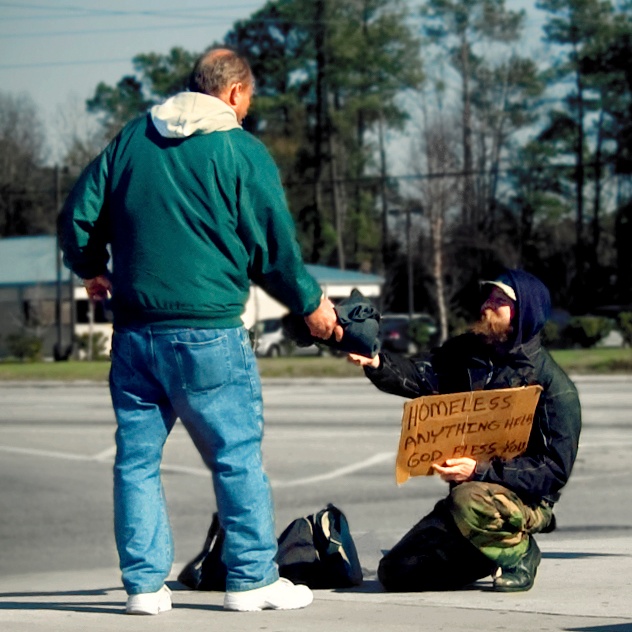Right before my eyes, I have seen the numbers of people asking for money increase in New Bedford, MA. Seven years ago, you might have seen two or three people a month. Now, there are four at a single intersection every day.
You may ask, how do I interact with these individuals? Do I give money, or will they just spend it on drugs and alcohol? Do I provide food? Do I put my head down and pretend I don’t see them at all? Are they even homeless? Am I being played? Depending on whom you ask, you will most likely get a different answer. The Center for Social Innovation and t3 have a wealth of knowledge about homelessness. So, I asked my colleagues, what do they do when someone asking for money approaches them? There were many different opinions, but five patterns arose.








